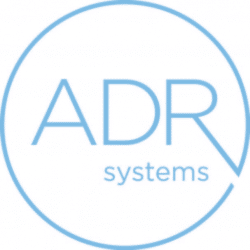Alternative dispute resolution (ADR) is more than just mediation and arbitration. It encompasses various methods for resolving disputes faster and at a lower cost. This comprehensive guide to ADR methods surveys some of the most popular and useful ADR methods available at ADR Systems.
Mediation
Mediation is a voluntary and confidential ADR method in which a neutral third party, who is known as a mediator, facilitates negotiations between disputing parties. The mediator does not impose a decision but rather helps the parties communicate, identifies underlying issues, and explores potential solutions. Mediation is often used to resolve personal injury disputes, workplace conflicts and commercial suits. Most mediations are:
- Non-binding: Parties may walk away from mediation at any time and the mediation is only binding when both sides sign a settlement agreement
- Collaborative: Mediation encourages open communication and cooperation
- Cost-effective: Typically, it is less expensive than arbitration or litigation
- Timesaving: Parties can resolve disputes more quickly by mediating them compared to litigating them
For more details on mediation, check out our guide, Mediation: What to Expect.
Binding Mediation
While mediation is typically non-binding, ADR Systems also offers binding mediation services. In binding mediation, if the parties cannot agree to a settlement, they may authorize the mediator to make a binding decision. To manage risk during the binding mediation, the parties may establish high-low parameters, ensuring the mediator’s decision falls within an agreed-upon range. Learn more about high-low agreements and their usefulness in binding mediation and arbitration.
Arbitration
Arbitration is a more structured ADR method in which a neutral third party hears evidence and arguments from both sides and renders a decision on a dispute. Arbitration can be conducted by one or three arbitrators. Unlike mediation, arbitration is usually binding, meaning the decision is enforceable in court. Arbitration is commonly used in personal injury cases, auto/trucking matters, and commercial contract disputes. Characteristics of arbitration include:
- Binding or Non-binding: Most arbitration decisions are binding, but non-binding arbitration is also an option
- Faster and Less Expensive: Arbitration can take less time and can cost less than litigation if well managed
- Private and Confidential: Unlike court cases, arbitration is private, and the parties can agree to keep the proceedings confidential
- Flexibility: There is more procedural flexibility than if the parties went to court because they select the arbitration rules and the procedural rules that will control the arbitration
As with mediation, parties can set high-low parameters in arbitration, mitigating risk. For more details on arbitration, check out our guide, Arbitration: You Have Choices.
Paper Arbitration
Paper arbitration, also known as document-only arbitration, is a streamlined ADR method in which the arbitrator reviews written submissions from both parties and renders a decision without holding a hearing. This method is often used in cases where the dispute is primarily based on contractual interpretations or documentary evidence
Tri-panel Arbitration
Tri-panel arbitration involves a panel of three arbitrators rather than a single arbitrator. Each party typically selects one arbitrator, and the two chosen arbitrators jointly select a third neutral arbitrator. This approach is commonly used in disputes where a balanced and multi-perspective decision-making process is beneficial.
Learn more about the benefits of tri-panel arbitration.
Mediation-Arbitration (Med-Arb) Hybrid
Mediation-Arbitration (Med-Arb) is a hybrid ADR method that combines elements of both mediation and arbitration. The process begins with mediation, where a neutral mediator facilitates negotiations between the parties to help them reach a mutually agreeable resolution. If mediation fails to resolve the dispute, the process transitions into arbitration, where the same or a different neutral third party serves as an arbitrator and renders a binding decision. This hybrid approach offers the benefits of collaborative problem-solving while ensuring that a final resolution is reached if negotiations break down. Med-Arb is often used in labor disputes, commercial conflicts, and family law cases where finality is crucial.
Parties may also resolve their dispute through a Med-Arb Hybrid process because of a step clause in a contract. These are often called “mediation/arbitration step clauses.” Transactional attorneys often include them in commercial contracts to mitigate risks, manage future disputes and minimize the costs that accompany them. Learn more about how mediation/arbitration step clauses are used in commercial contracts.
Neutral Evaluation
Neutral evaluation involves a neutral attorney or retired judge who assesses the strengths and weaknesses of each party’s case. The evaluator provides an informed opinion on the likely outcome if the case were to go to trial. While not binding, this evaluation can guide settlement negotiations. It is particularly useful in complex legal disputes involving technical or specialized knowledge.
Special Master
A Special Master is a neutral third party who oversees specific aspects of a legal dispute, often in complex cases requiring expert knowledge. Special masters assist in facilitating settlements, managing discovery and making recommendations. They are commonly used in cases involving large-scale litigation, such as class actions, intellectual property disputes or intricate financial matters. Their role helps streamline proceedings, reduce court burdens and ensure fair and cost-effective resolutions.
Discovery Master
A Discovery Master is a neutral expert who oversees the discovery process in complex litigation. Their role is to resolve disputes related to evidence collection, privilege claims, document production and compliance with discovery rules. Discovery masters help streamline the process by ensuring efficiency, reducing delays and alleviating the burden on the court. Their expertise is particularly valuable in cases involving extensive electronic discovery (e-discovery), trade secrets or voluminous records, ensuring an impartial and organized approach to pretrial procedures.
Choosing the Right ADR Method
Selecting the appropriate ADR method depends on factors such as the nature of the dispute, the relationship between parties and the desired outcome. For example, mediation works well for parties seeking an amicable resolution; arbitration is used when parties need their matter adjudicated; and neutral evaluation is appropriate when parties want an objective analysis of their case.
ADR offers a flexible, timesaving, and cost-effective alternative to litigation. By understanding the different ADR methods, parties can choose the approach that best aligns with their needs, ultimately leading to more satisfactory resolutions. Whether through mediation, arbitration or other ADR processes, the goal remains the same: to resolve disputes efficiently while preserving relationships and reducing the burdens of traditional litigation.
For more information or to schedule a case, contact ADR Systems.
ADR Systems, It’s Settled. ®





